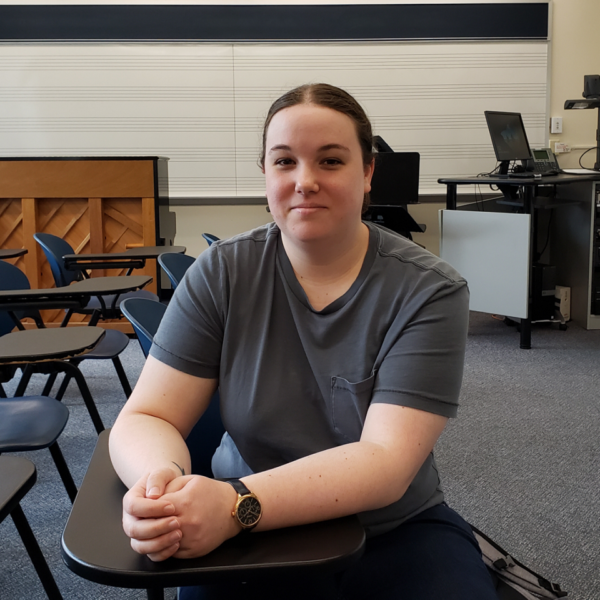Jessica Nelson is not a traditional undergraduate college student. She is a sophomore honor’s student double majoring in physics and mathematics at Westminster College in New Wilmington, Pennsylvania, and she arrived there via an aircraft carrier.
Nelson realized when she was still in high school that she was not going to be able to enter college immediately after graduation due to her family’s financial situation, so she decided to explore another option — The military.
She became a reserve member of the United States Navy for her final 14 months in high school and then began active duty upon graduation where she worked on an aircraft carrier in the nuclear power program. Because of the structure of the military, it was here that she said she learned the discipline and skills required to study in a college setting.
Her original contract with the U.S. Navy was for a six-year term, but she left after four years due to a clerical error made while transferring commands. A clearance she needed for her job was removed and she was given the option to leave early.
She accepted the early discharge but college was not immediately in her plans since her release happened a lot earlier than she intended.
Nelson said, “I didn’t have a plan set forth, so I just kind of meandered for a few years, did random jobs, then was finally able last year to start school.”
Westminster College is open to students of any age, but according to the IPEDS Survey posted on their website, only about 1 percent of their undergraduate students are older than the age of 25. However, since Nelson’s wife had been teaching at the college at the time, it was relatively close to where they were living and the college offers veterans several financial aid options, Westminster became her choice when she was ready to return to school.
As a veteran of the U.S. Navy, Nelson is eligible for the Post-9/11 GI Bill™ (Chapter 33). This funding is helping her to fund her costs for an undergraduate degree. Eligible veterans can also use this funding for a variety of lifelong learning opportunities including:
- Correspondence training
- Cooperative training
- Entrepreneurship training
- Flight training
- Independent and distance learning
- Institutions of higher learning graduate degrees
- Licensing and certification reimbursement
- Vocational/technical training, non-college degree programs
- National testing reimbursement
- On-the-job training
- Tuition Assistance top-up
- Tutorial assistance
- Vocational/technical training
As a Westminster College student, Nelson also benefits from the Yellow Ribbon Program. This program allows participating colleges and universities to work with the Department of Veterans Affairs to fund tuition and fees.
The Yellow Ribbon Program page on the Department of Veterans Affairs website says, “These institutions voluntarily enter into a Yellow Ribbon Agreement with VA and choose the amount of tuition and fees that will be contributed. VA matches that amount and issues payments directly to the institution.”
Returning to school as an adult over the age of 25 is often tricky but Nelson does not regret it. She intends to keep going once she gets her degree from Westminster to eventually earn her Ph.D. The path she has taken to get to this point may not be the right path for everyone, but it was for her.
“I’m glad I did it this way. Just because I don’t think I would want to give up a lot of the experiences I had,” she said. “I think it’s worth it.”
